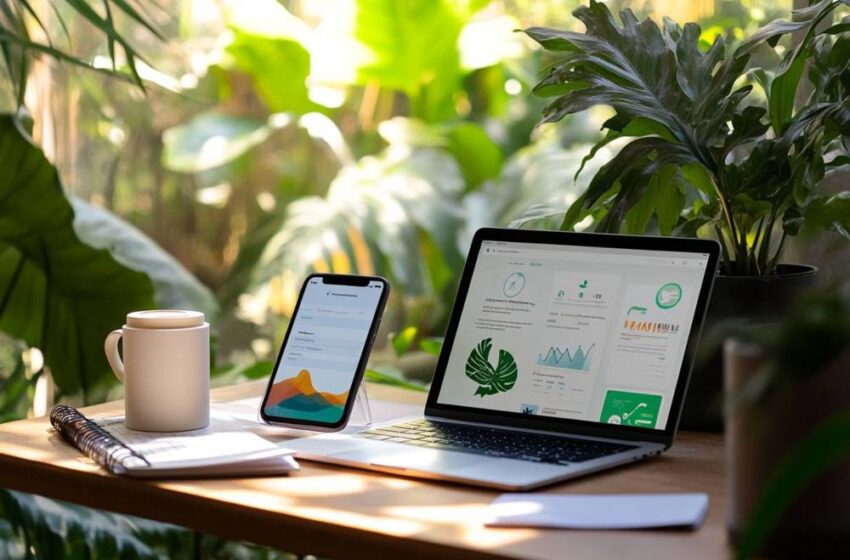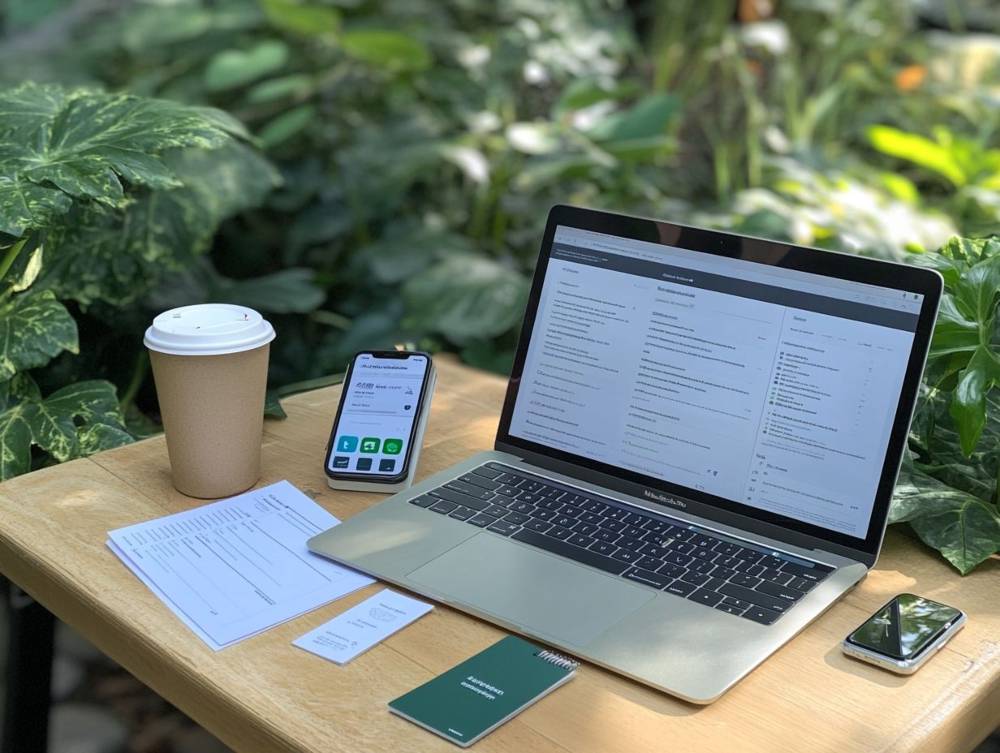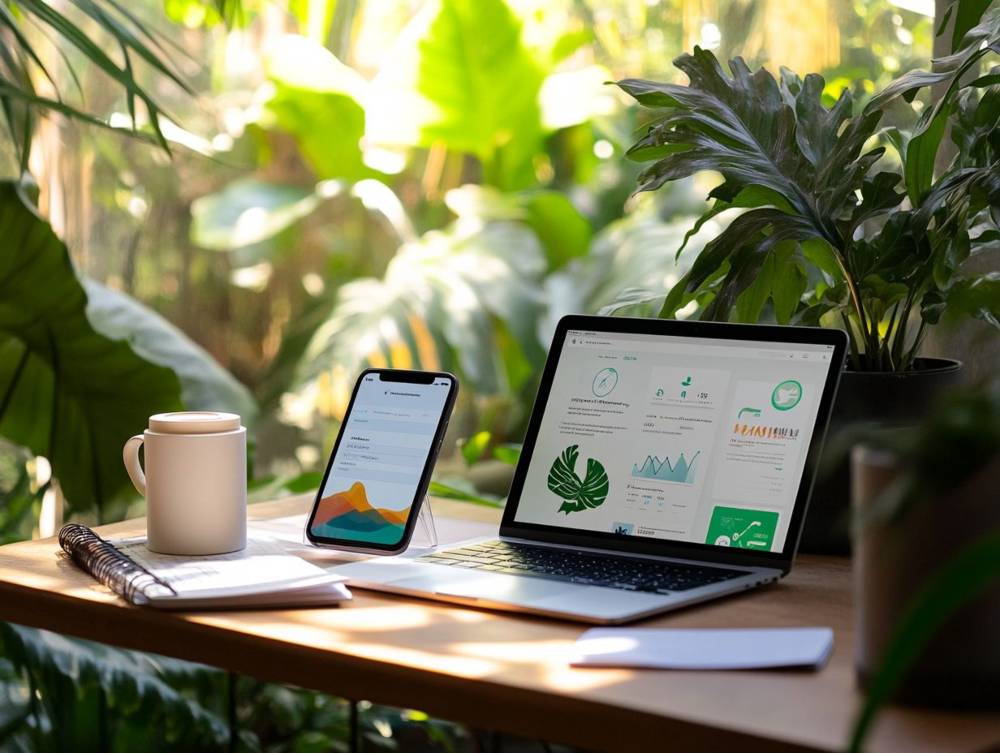
Beyond Business Cards: 7 Game-Changing Strategies for Mediator Marketing in the Digital World
In today’s digital landscape, mediators require more than traditional business cards and must embrace digital marketing tactics to distinguish themselves and effectively connect with clients. This article examines the significance of mediator marketing, emphasizing essential branding strategies to enhance visibility and client engagement. By leveraging social media marketing, establishing a professional online presence, utilizing email marketing, and implementing innovative outreach methods such as webinars and video marketing, this discussion will cover techniques that can significantly elevate your practice. We invite you to explore engagement metrics, analytics tools, and marketing tactics that measure success and gain insights to thrive in a competitive environment.
The Role of Mediator Marketing in the Digital World
In today’s interconnected digital landscape, mediator marketing is crucial for fostering professional relationships and enhancing online presence.
Mediators employ effective digital marketing strategies to engage clients, generate leads, and establish a robust brand identity through personal branding and storytelling in marketing. This marketing approach encompasses various tactics, including:
- Social media marketing
- Search engine optimization (SEO) strategies
- Email marketing campaigns
- Content marketing with creation designed to resonate with the target audience
By leveraging these strategies, mediators can significantly enhance their online presence, visibility, and credibility within their respective niches, thereby distinguishing themselves in a competitive marketplace. Consequently, comprehending the impact of mediator marketing, including niche marketing and networking techniques, is essential for sustained business growth.
Understanding the Importance and Impact
Understanding the significance and impact of mediator marketing is essential for developing effective branding strategies, marketing funnels, and enhancing client engagement.
This approach transcends traditional advertising by utilizing influencer marketing and third-party influencers or organizations to promote products or services, thereby establishing a more authentic connection with potential customers. For example, a prominent skincare brand collaborated with beauty bloggers to showcase their products, resulting in a notable 40% increase in online sales over a six-month period.
Such marketing campaigns not only yield immediate results but also contribute to fostering long-term brand loyalty, as satisfied customers are more inclined to share their positive experiences, enhancing brand awareness and online reputation.
The relationship between mediator marketing and successful referral strategies is clear; brands that leverage mediators frequently experience higher participation rates in referral initiatives, which can lead to significantly increased customer acquisition and retention.
Leveraging Social Media for Mediator Marketing
Utilizing social media for mediator marketing can significantly improve online visibility, promote client engagement, and enhance brand positioning through strategic outreach and innovative content approaches.
Maximizing Reach and Engagement
Maximizing reach and engagement through mediator marketing requires a strategic approach to audience segmentation, digital transformation, and the implementation of effective digital advertising techniques.
To achieve this, businesses should consider implementing personalized marketing campaigns that resonate with specific audience groups, tailored to their preferences and behaviors. By leveraging data analytics tools, companies can refine their target demographic profiles, ensuring that each promotional effort is both relevant and engaging.
Launching targeted online advertising promotions can effectively capture attention during critical moments, such as holidays or industry events. Furthermore, integrating robust content marketing strategies and call-to-action elements can significantly enhance the user experience.
This comprehensive approach not only fosters trust building and customer loyalty among clients but also cultivates a community, driving sustained interactions and encouraging repeat engagements.
Creating an Online Presence for Mediators
Establishing a robust online presence for mediators is crucial for attracting clients, enhancing credibility within their field, and improving their digital footprint. Consequently, a professional website and personal website serve as invaluable assets.
The Power of a Professional Website

The effectiveness of a professional website is demonstrated by its capacity to optimize user experience, ensure consistent branding and visual identity, and significantly enhance conversion rates.
A well-designed website should utilize responsive design principles and conversion optimization to ensure optimal appearance and functionality across a variety of devices, including desktops, tablets, and smartphones.
Additionally, the inclusion of digital business cards and digital tools is essential, as they provide convenient access to contact information and social media profiles, thereby facilitating seamless communication with clients.
Implementing website optimization strategies, such as reducing loading times, enhancing user-friendly navigation, and presenting engaging content strategy elements, can further improve the overall visitor experience.
When these elements are cohesively integrated, they result in a robust online presence that not only captures attention but also cultivates trust building and loyalty among users.
Utilizing Online Directories
Utilizing online directories represents a strategic approach for mediators to enhance their online presence, manage their online reputation, and attract new clients through positive online reviews.
By securing listings in these directories, mediators can significantly improve their visibility and digital footprint, facilitating the process for prospective clients seeking reliable services. This increased exposure not only broadens their audience reach and target audience but also establishes a sense of credibility, as many directories assess and endorse professionals based on established qualifying criteria.
Along with enhancing visibility, effective reputation management strategies such as responding promptly to feedback loops and actively soliciting reviews are essential for maintaining a positive image.
Furthermore, employing customer relationship management (CRM) tools enables mediators to cultivate client relationships more effectively by tracking interactions, personalizing communications, and ensuring timely follow-ups, ultimately fostering client loyalty and encouraging repeat business through personalized marketing.
Utilizing Email Marketing for Mediators
Utilizing email marketing constitutes a highly effective strategy for mediators to enhance client engagement, nurture leads with lead nurturing techniques, and sustain ongoing communication with their audience.
Building and Nurturing Relationships
Building and nurturing relationships through email marketing requires a comprehensive understanding of the customer journey, marketing automation, and the ability to articulate a compelling value proposition effectively.
By strategically guiding potential clients through each stage of the marketing funnels, businesses can create tailored experiences that resonate with their target audience. The utilization of customer testimonials is crucial in this process, as these endorsements provide social proof that alleviates doubts and fosters trust building.
Incorporating such testimonials within email campaigns not only reinforces the value proposition but also strengthens the connection with recipients, enhancing brand storytelling.
Ongoing client engagement is further enhanced through the use of segmented email lists and audience targeting, where personalized content fosters interactive dialogue and ensures that customers feel valued. This approach ultimately drives customer loyalty and increases conversion rates.
Innovative Strategies for Mediator Marketing
Implementing innovative strategies, such as webinars, virtual events, and event marketing, can markedly enhance the effectiveness of mediator marketing by facilitating direct engagement with the target audience.
Webinars and Virtual Events

Webinars and virtual events are highly effective tools for mediators to present interactive content, establish thought leadership, and engage with segmented audiences in a meaningful way through collaborative marketing.
By carefully planning the content to both inform and captivate the specific interests of various audience groups, mediators can cultivate deeper connections, brand positioning, and enhance relevance. This process involves conducting comprehensive audience segmentation and market research to tailor messages that resonate with the unique needs and preferences of each group.
Utilizing targeted marketing strategies and promotional campaigns to promote the event can further enhance visibility and encourage participation.
By leveraging social media, email campaigns, digital platforms, and strategic partnerships, mediators can reach a broader demographic while ensuring that the content remains engaging and aligned with audience expectations. Ultimately, these strategies contribute to the success of a webinar, maximizing its impact and fostering meaningful interactions.
Collaborating with Other Professionals
Collaborating with other professionals through strategic partnerships, influencer collaboration, and influencer marketing can significantly enhance the visibility and outreach of mediator marketing initiatives.
This approach not only expands the audience base but also cultivates trust building through association with reputable figures in the industry. For example, a mediator working in close collaboration with legal firms can leverage referrals that enhance their credibility. Additionally, co-hosting workshops with other professionals can provide valuable insights and networking opportunities.
These partnerships enable mediators to exchange resources, knowledge, and client referrals, ultimately resulting in improved efficiency, community building, and a stronger community presence.
Successful mediator coalitions have been observed in community mediation centers, where diverse groups come together to offer comprehensive conflict resolution services, thereby illustrating the substantial impact of collaboration, professional networking, and business networking in advancing shared objectives.
Measuring Success in Mediator Marketing
Measuring success in mediator marketing is crucial for assessing the effectiveness of various strategies, including digital marketing and branding strategies, and optimizing future initiatives.
This can be achieved through the use of analytics tools, content marketing strategies, and key marketing metrics.
Key Metrics and Tools for Evaluation
Key metrics and evaluation tools are essential for assessing the effectiveness of mediator marketing efforts, conducting a thorough competitive analysis, and understanding client engagement.
To obtain a clearer understanding of performance, mediators should consider employing analytics platforms such as Google Analytics, which offers comprehensive insights into website traffic and user behavior. Additionally, social media analytics tools like Hootsuite or Sprout Social can facilitate the tracking of engagement rates and audience demographics across various platforms.
By thoroughly analyzing these metrics, mediators can identify which marketing strategies are delivering optimal results and pinpoint areas that may require modification. Utilizing tools such as SEMrush for keyword analysis can provide further insights into search engine performance, enabling mediators to make informed decisions that enhance the effectiveness of future campaigns.
Frequently Asked Questions
1. What are the 7 game-changing strategies for mediator marketing in the digital world, including digital transformation and marketing automation?

The 7 game-changing strategies for mediator marketing in the digital world are: creating a strong online presence, utilizing social media platforms, developing a personal brand, implementing SEO strategies, leveraging email marketing, utilizing video marketing, and building relationships through strategic partnerships and networking techniques.
2. How can I create a strong online presence as a mediator?
You can create a strong online presence by creating a professional website, utilizing social media profiles, and actively engaging with your audience through blog posts and online discussions. It is important to regularly update your online platforms and showcase your expertise as a mediator.
3. Why is it important for mediators to utilize social media platforms for brand awareness and engagement strategies?
Social media platforms provide a great opportunity for mediators to connect with potential clients and establish themselves as thought leaders in their field. These platforms also allow for targeted advertising and networking with other professionals in the industry.
4. What is the role of personal branding and visual identity in mediator marketing?
Personal branding is crucial for mediators in the digital world as it helps to differentiate and showcase their unique expertise and style. This can be achieved through consistent branding elements, such as a logo and color scheme, as well as a clear and compelling bio or elevator pitch.
5. How can SEO tactics benefit mediator marketing?
Implementing SEO tactics, such as keyword optimization and backlinking, can help improve your website’s visibility and rank on search engines. This can drive more traffic to your website and increase your chances of being found by potential clients.
6. What is the role of email marketing and personalized marketing in mediator marketing?
Email marketing allows mediators to stay in touch with their current and potential clients, providing them with valuable updates and information. It can also be used to promote events, share blog posts, and showcase success stories, ultimately building trust and credibility with your audience.



